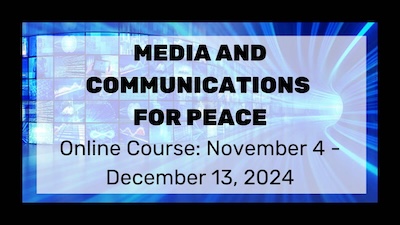(This is section 48 of the World Beyond War white paper A Global Security System: An Alternative to War. Continue to preceding | following section.)

The global economy is administered, financed and regulated by three institutions – The World Trade Organization (WTO), The International Monetary Fund (IMF), and the International Bank for Reconstruction and Development (IBRD; “World Bank”). The problem with these bodies is that they are undemocratic and favor the rich nations against the poorer nations, unduly restrict environmental and labor protections, and lack transparency, discourage sustainability, and encourage resource extraction and dependence. The unelected and unaccountable governing board of the WTO can override the labor and environmental laws of nations, rendering the populace vulnerable to exploitation and environmental degradation with its various health implications.
The current form of corporate- dominated globalization is escalating the plunder of the earth’s riches, increasing the exploitation of workers, expanding police and military repression and leaving poverty in its wake.
Sharon Delgado (Author, Director Earth Justice Ministries)
Globalization itself is not the issue—it’s free trade. The complex of government elites and transnational corporations that control these institutions are driven by an ideology of Market Fundamentalism or “Free Trade,” a euphemism for one-sided trade in which wealth flows from the poor to the rich. The legal and financial systems these institutions set up and enforce allow for the export of industry to havens of pollution in countries that oppress workers who attempt to organize for decent wages, health, safety and environmental protections. The manufactured goods are exported back to the developed countries as consumer goods. The costs are externalized to the poor and the global environment. As the less developed nations have gone deeply into debt under this regime, they are required to accept IMF “austerity plans,” that destroy their social safety nets creating a class of powerless, impoverished workers for the northern-owned factories. The regime also impacts agriculture. Fields that ought to be growing food for people are instead growing flowers for the cut-flower trade in Europe and the U.S. Or they have been taken over by elites, the subsistence farmers shoved out, and they grow corn or raise cattle for export to the global north. The poor drift into the mega-cities where, if lucky, they find work in the oppressive factories creating export goods. The injustice of this regime creates resentment and calls for revolutionary violence which then calls out police and military repression. The police and military are often trained in crowd suppression by the United States military at the “Western Hemisphere Institute for Security Cooperation” (formerly “School of the Americas”). At this institution training includes advanced combat arms, psychological operations, military intelligence and commando tactics.note48 All of this is destabilizing and creates more insecurity in the world.
The solution requires policy changes and a moral awakening in the north. The obvious first move is to cease training police and military for dictatorial regimes. Second, the governing boards of these international financial institutions need to be democratized. They are now dominated by the Industrial North nations. Third, so-called “free trade” policies need to be replaced with fair trade policies. All of this requires a moral shift, from selfishness on the part of Northern consumers who often purchase only the cheapest possible goods regardless of who suffers, to a sense of global solidarity and a realization that damage to ecosystems anywhere has global implications, and has blowback for the north, most obviously in terms of climate deterioration and immigration problems that lead to militarizing borders. If people can be assured of a decent life in their own countries, they will not be likely to try to immigrate illegally.
(Continue to preceding | following section.)
We want to hear from you! (Please share comments below)
How has this led you to think differently about alternatives to war?
What would you add, or change, or question about this?
What can you do to help more people understand about these alternatives to war?
How can you take action to make this alternative to war a reality?
Please share this material widely!
Related posts
See other posts related to “Managing International and Civil Conflicts”
See full table of contents for A Global Security System: An Alternative to War
Notes:
48. Supported by the following study: Bove, V., Gleditsch, K. S., & Sekeris, P. G. (2015). “Oil above Water” Economic Interdependence and Third-party Intervention. Journal of Conflict Resolution. Key findings are: Foreign governments are 100 times more likely to intervene in civil wars when the country at war has large oil reserves. Oil dependent economies have favored stability and support dictators rather than emphasizing democracy. (return to main article)









3 Responses
While the international banking institutions are at the peak of the pile of the money creation process, the whole system of a for a profit monopoly casino operating the money system must be replaced by not for profit democratic institutions at the grass roots level if we are to achieve political as well as economic democracy.
Thanks Paul. I think your reference to a “casino” is particularly apt. So much of what passes for “modern business” and “high finance” is just a crapshoot. Maybe if we were all working towards outcomes that really mattered, we’d feel more enthusiasm for outcomes-based approaches. It would probably produce an economy that produced a whole lot more “goods” with a whole lot less pointless activity.
May 16, 2015 – The New York Times editorial: “Past Time to Reform Bretton Woods” – “If the West does not make more space for developing countries in existing financial institutions, the result will probably be a more fragmented global economy.” http://www.nytimes.com/2015/05/17/opinion/sunday/past-time-to-reform-bretton-woods.html